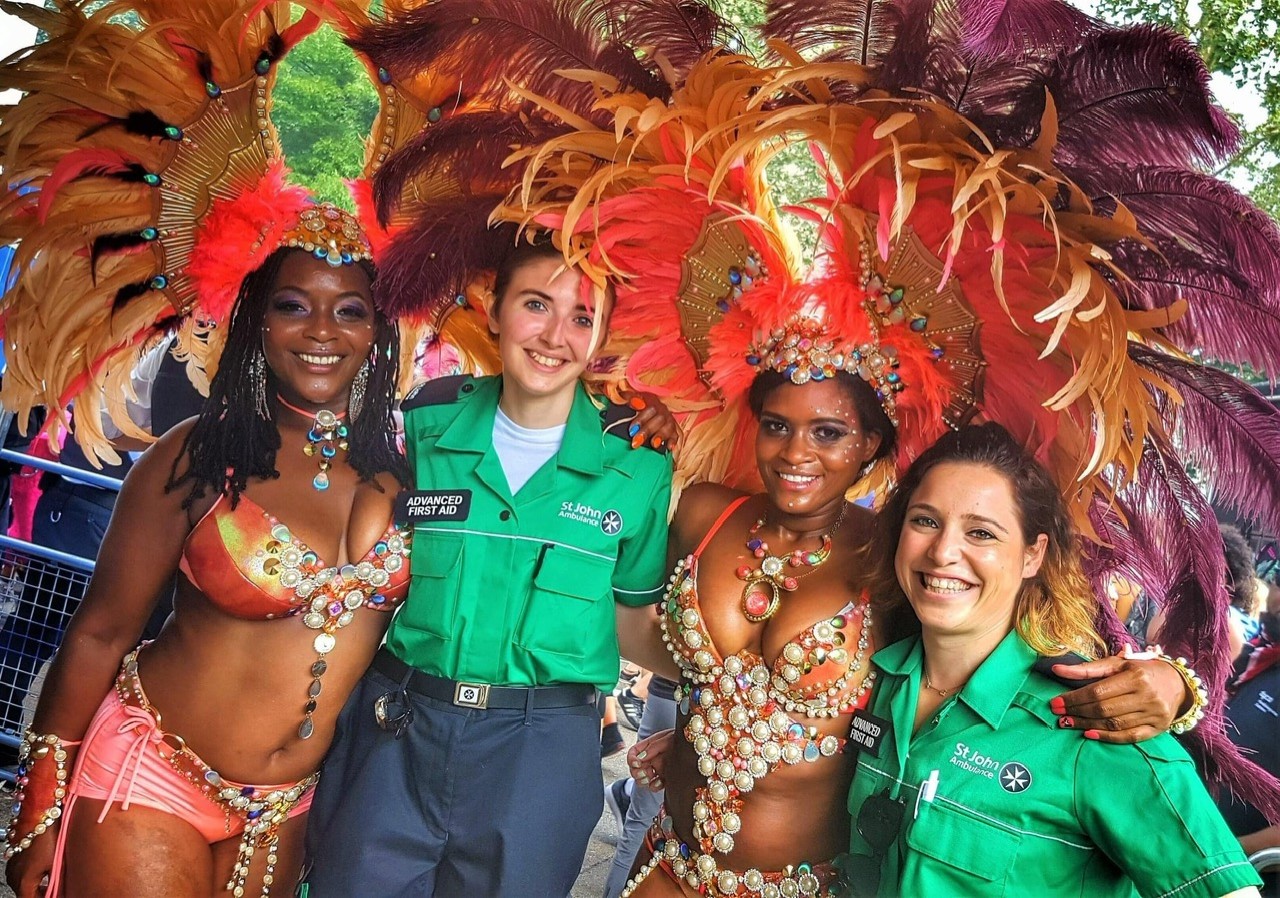Transcript
But I was actually on a duty for the London Marathon and I started off being age ten, just handing out Vaseline and it was something called Vaseline Alley, so all the Cadets were – if they were younger, they were all lined up with their gloves on with Vaseline held out. And then people would run past and then just scoop it out your hand, some people thought it was ice cream, so they got a bit of a shock, yeah, some people thought it was kind of ice. So again we got lots of, “Hey what is that, why are you giving this to us?” I, aged twelve, had a guy with a full on wedding dress stand right in front of me and go, “Oh I needed this,” and I was thinking, oh okay, this is very lovely, thank you very much. Whereas my sister was lucky enough to give Vaseline to Gordon Ramsey, so I know the deal that I got, I got the wrong end of the stick, didn’t I there?
It was one of the first duties that I did, it was massive, and I was on the side of the road with this lady and she was like, she couldn’t get over the fact that I was helping and I was ten. And she was like, “So you’re ten?” I was like, “Yes.” And she was like, “So you’re part of St John Ambulance and you’re ten?” I’m like, “Yes.” And she was like, “So you’re helping me medically and you’re ten?” And I was like, “Yes.” Because I’d been taught how to do it and I think at such a young age you can still help people, and people are so shocked that Cadets can wear uniform and go out and help people probably better than people who’d work in the same office as them, genuinely. And I think it goes to show how if you just push yourself and go out there, you’re able to really enjoy yourself and get the most out of the organisation.
I actually ran my own treatment centre at the age of fifteen and this was at the New Year’s Day Parade. Basically because the night before New Year’s Eve a lot of the adults take control and it’s only for eighteen plus, they allow youth and young people the opportunity to take leading control the next day. So I was actually stationed – I had my own little treatment centre aged fifteen, and I had to do a little briefing in the morning and I was stationed right in the centre of London and I had my own comms team, I had my own advisor as well. And I think there were about ten of us on the station, I remember a doctor I also had and it was about delegation, and I learnt very quickly there that managing is not just about you, it’s about working with your team and what skills they have. So aged fifteen I was able to lead my whole treatment centre, set the ambulance up, make sure the resources were ready, ensure that the team are present and, most importantly, find out where the tea is, because I don’t know about you, but as soon as St John Ambulance volunteers, young or old turn up, they always want to know where the snacks and the tea is, otherwise they just don’t keep running. And so we actually were quite lucky that we had something Teapot round the corner, I don’t know if you’ve met Teapot before, but Teapot is a converted ambulance café essentially. We’ve got two of them and they’re stationed around New Year’s Day just to provide snacks to people. So I made sure I knew where Teapot was and I checked on the welfare of everyone that day. We weren’t too busy but it was enough for me to still understand how to triage people and say, right we’ve got a team, you have to always have a Cadet with First Aid, Advanced First Aider, and it was kind of just making sure that the pairings and the comms were all there. And as a fifteen year old, it did feel quite overwhelming at first but it was actually really cool because it was my first chance to be like, you know, you don’t just have to be on call doing the First Aid in order to help out, there’s so many more different roles within actually managing a duty.


